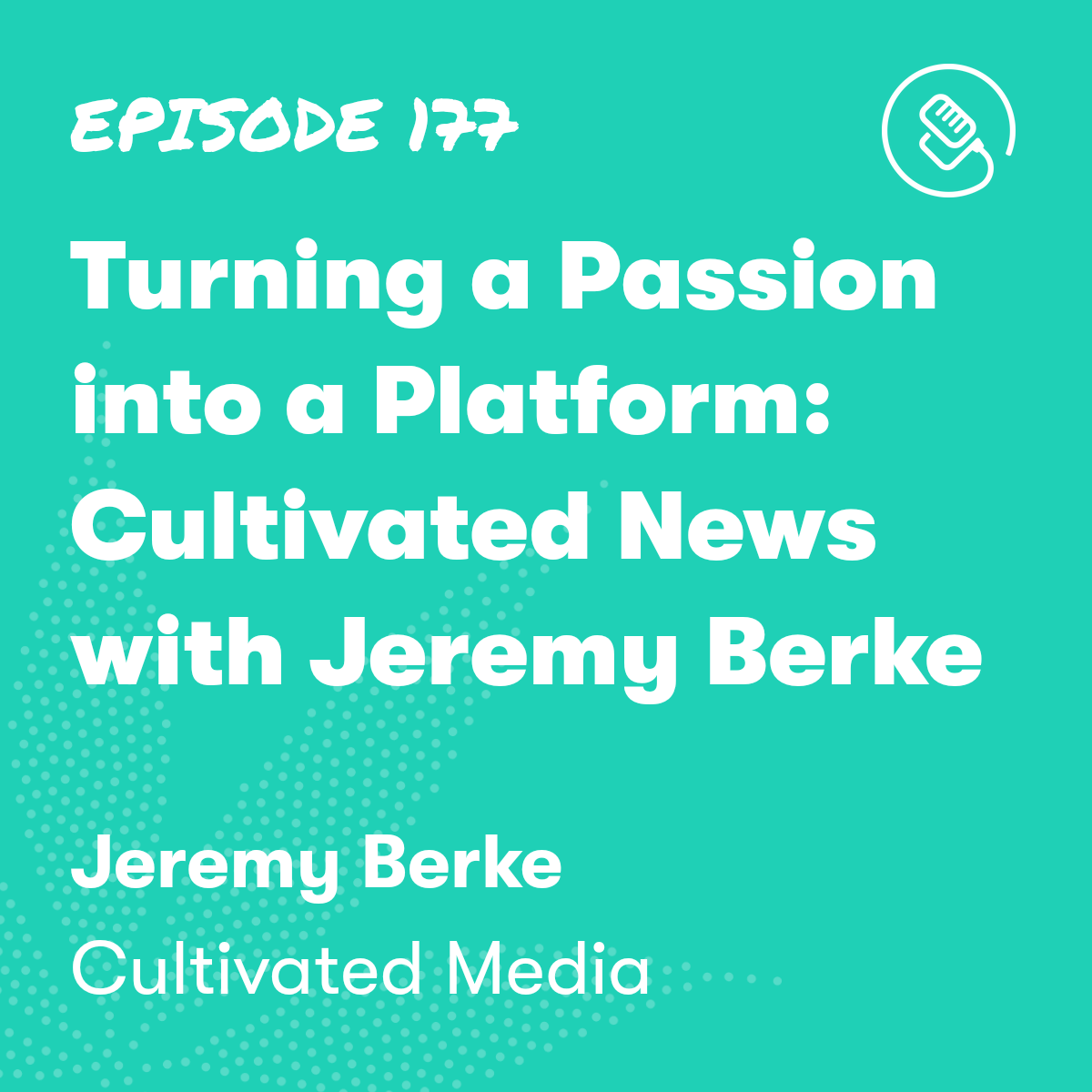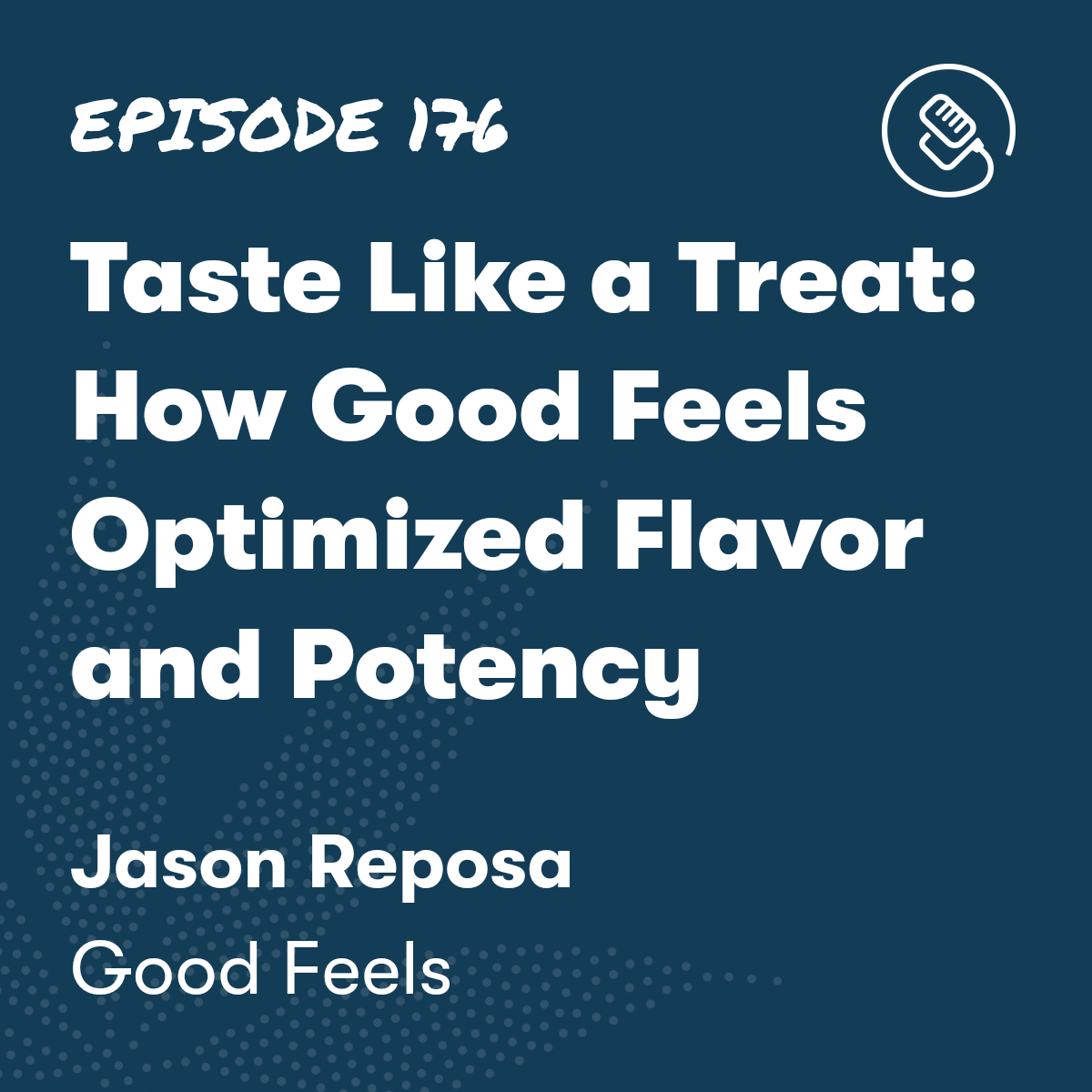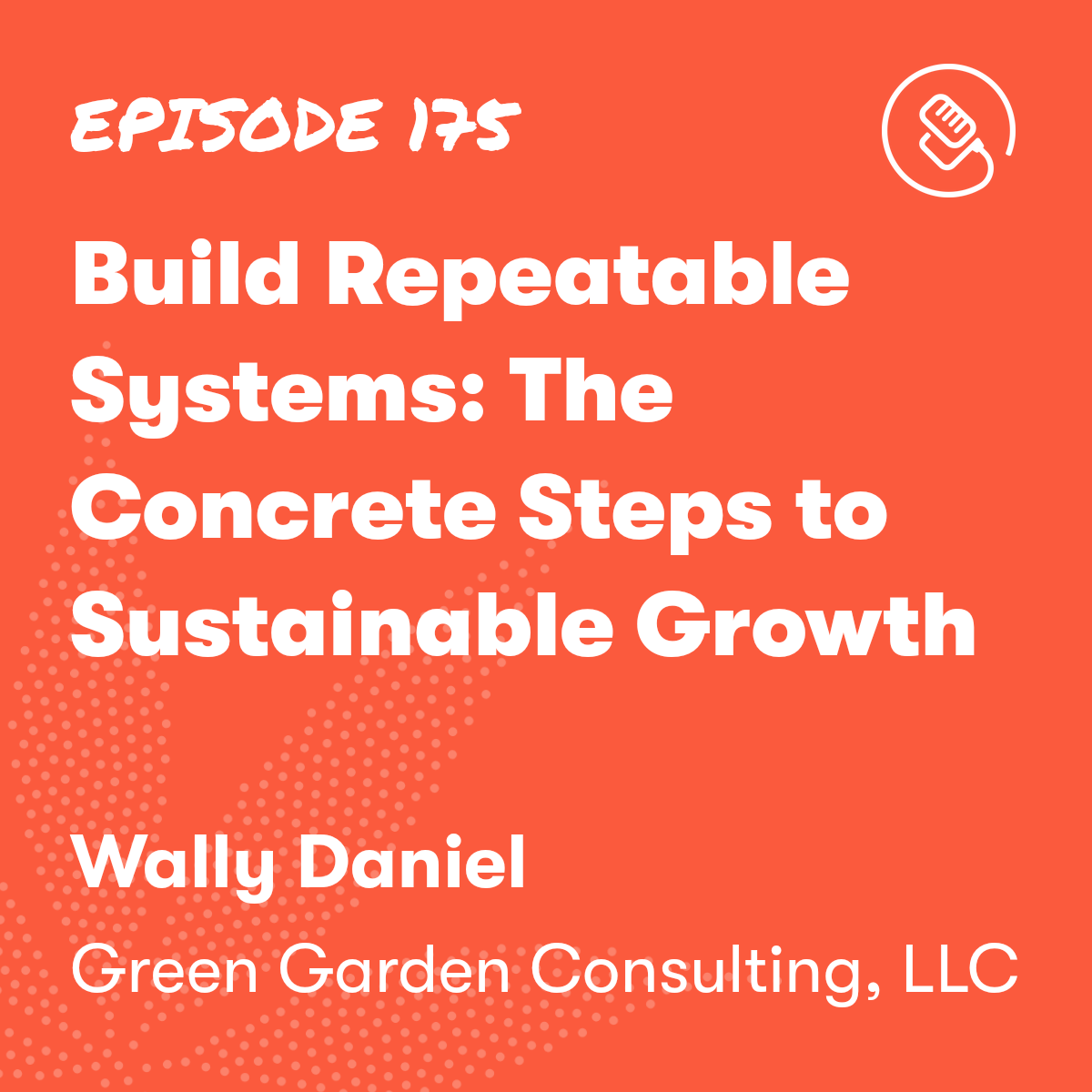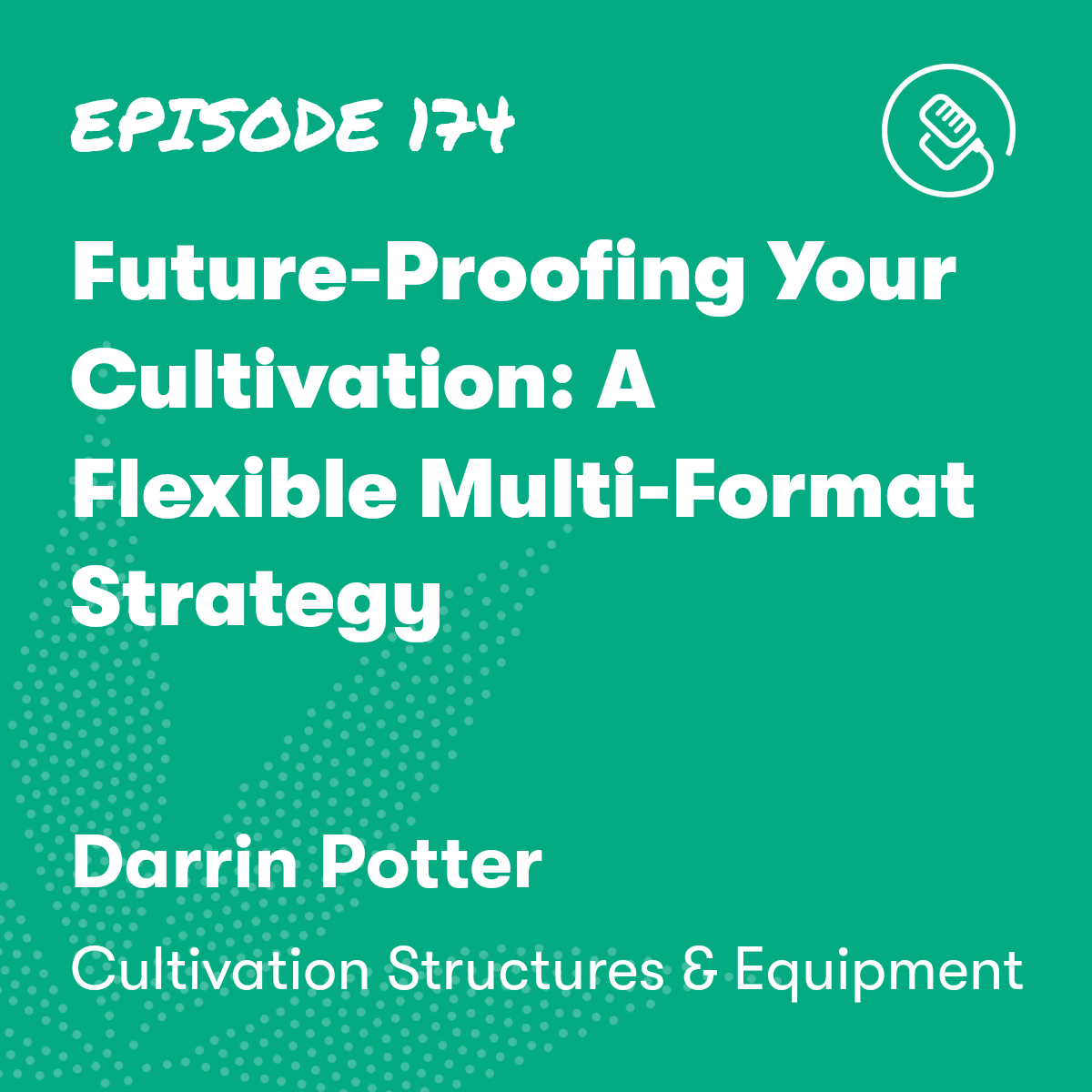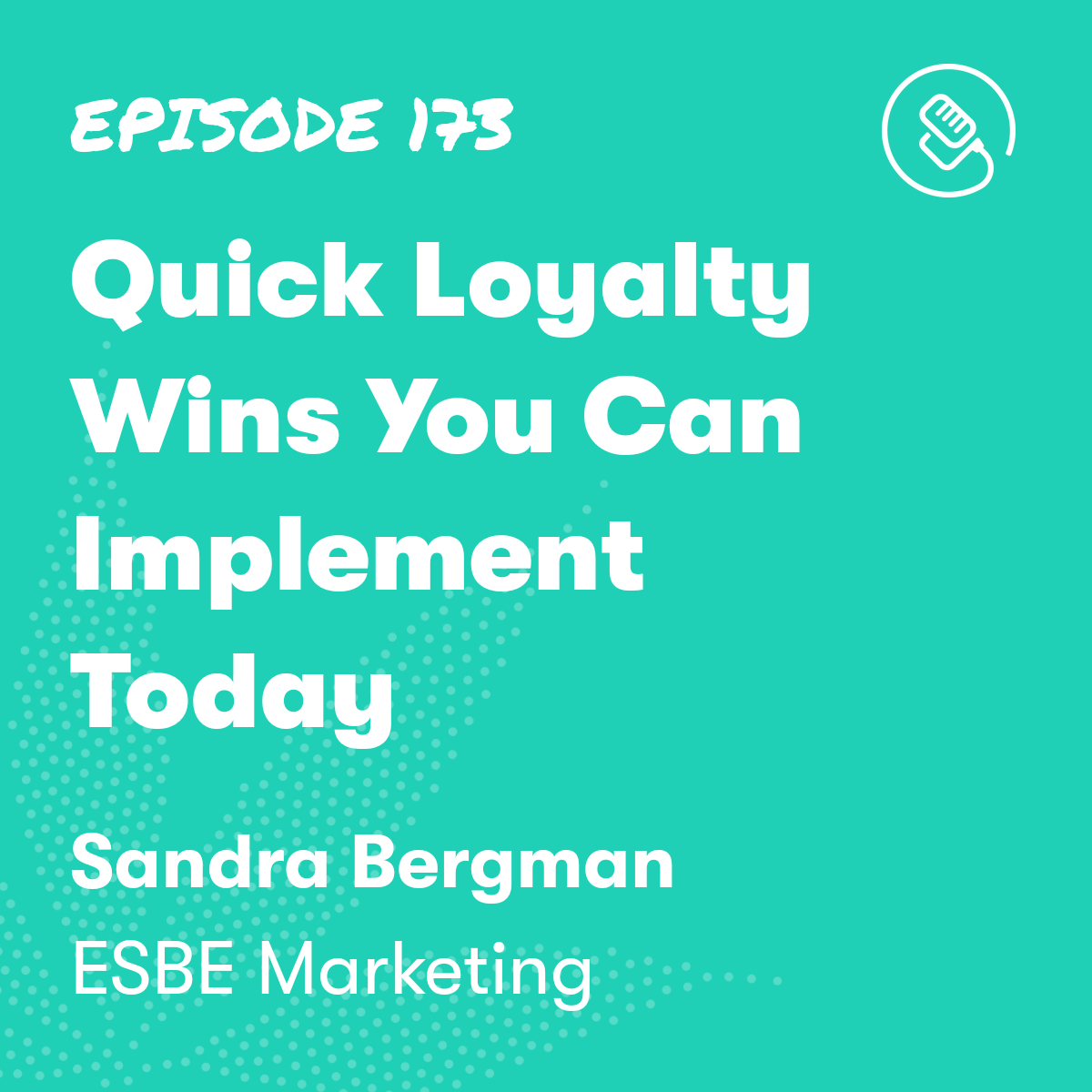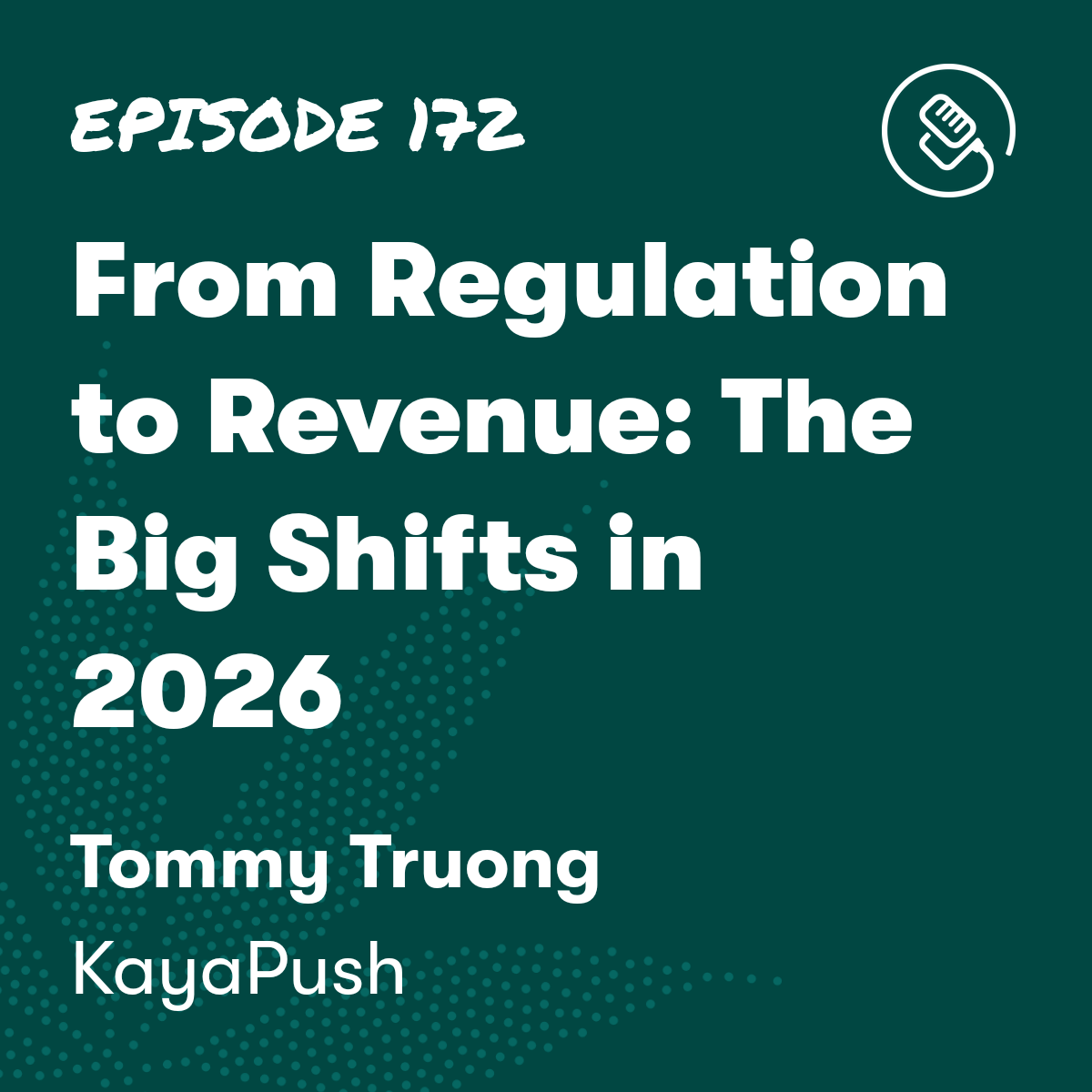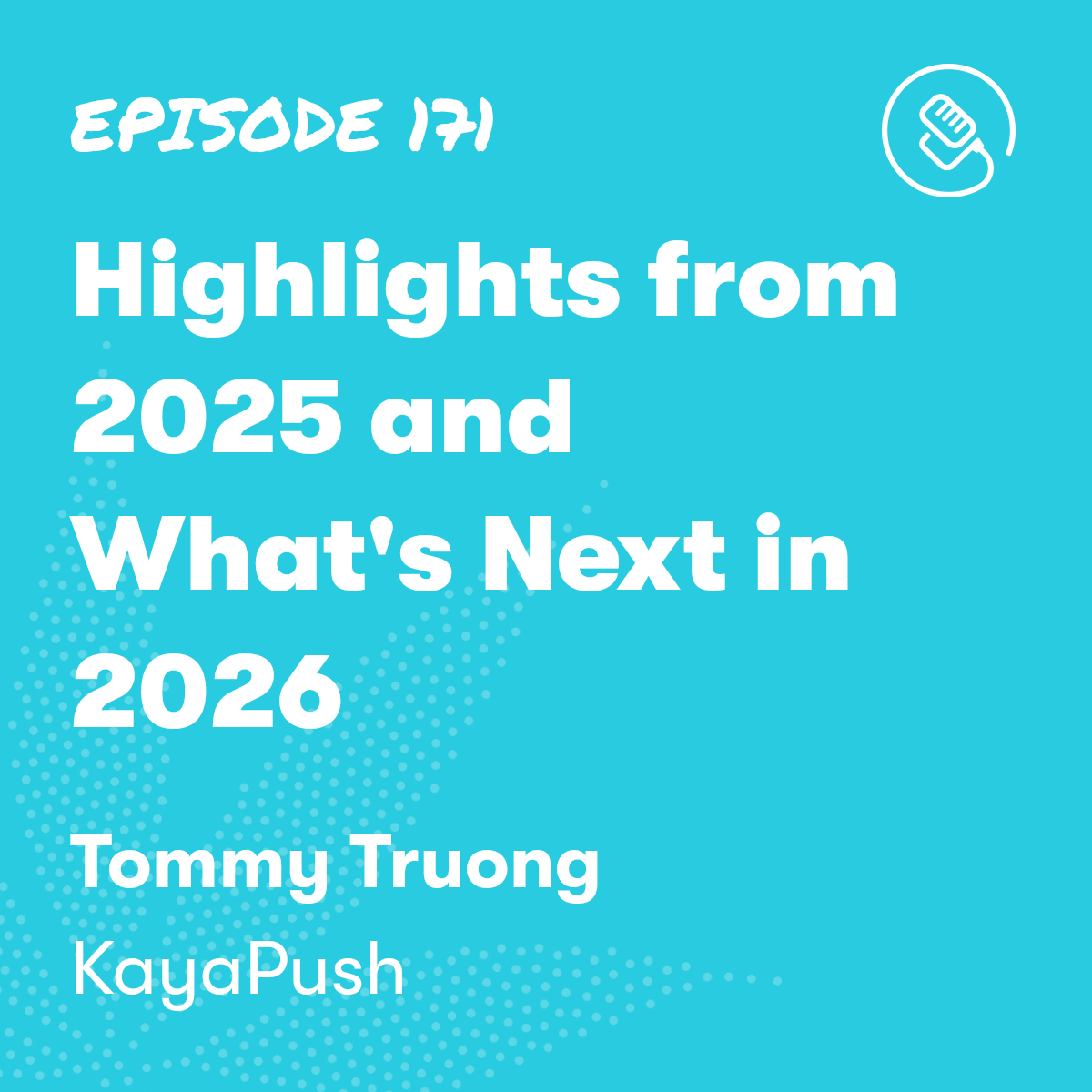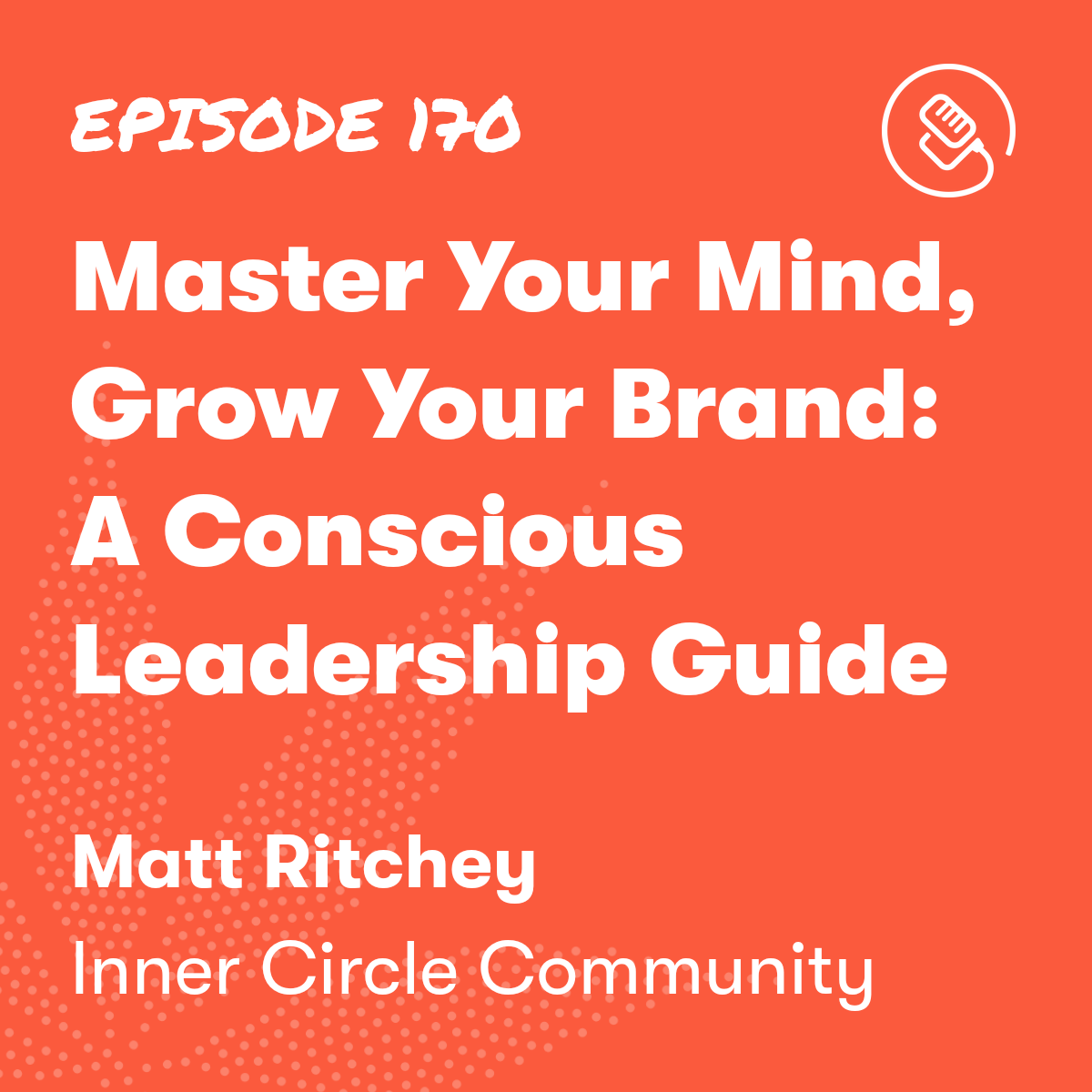

Designing a World Class Dispensary with Virginia Maggiore (RDC)
Episode Description

Episode Transcript
Tom Mulhern: Welcome back to the show. I am so excited to share this interview with Virginia from RDC Architecture.
And Virginia is the principal at RDC, and you know, she really goes into a lot of what it takes to design a store. And she talks about that in-store experience and just some of those principles that are so key when you are building out your dispensary. And this includes from start to finish licensing and thinking of the, the flow, even the parking outside, how important parking is when you're designing as dispensary.
Virginia is an architect, so she knows what she's talking about when it comes to the design of a store, the layout of a store, and really the way that cannabis retailers can maximize their footprint and create an experience for their customers that is gonna be top notch. So let's jump right into the show.
Tom Mulhern: Virginia is a licensed architect and is responsible for developing the in-store experience and customer journey, creative strategy and visual communication and marketing integration for retail clients. Virginia brings over 15 years of experience in the retail, wholesale, and international markets where she successfully developed and implemented retail strategies for global.
She works in close collaboration across the rdc, architecture, interiors, and procurement teams to provide clients with a detailed brand experience uniquely designed to fit their needs. Virginia, welcome to the show. It's so great to have you here. We're live at MjBizCon Virginia, tell me about your background and how did you end up here in cannabis? Great.
Virginia Maggiore: Yeah, thanks for having me. so I'm a retail architect. I've been in the, in, in retail industry for about 18 years now, working for some international retailers in the apparel business. About four years ago, started to get into dispensary. design And architecture, and really love it and really found a good niche market with some amazing clients.
Tom Mulhern: So you've been in retail.Design and, and architecture for 18 years. What are some of the most exciting sort of projects that you've worked on?
Virginia Maggiore: Oh, I've built some amazing flagships and, and some great countries all over the world in Hong Kong and Dubai and just like gotten to travel the world. I do really like the cannabis market in particular though.
I think we've got some really amazing projects under our belt because we have clients come to us. Stellar ideas and it's challenging, but we love a challenge so we love to make their vision come to life.
Tom Mulhern: So tell me a bit about RDC and how you guys work with dispensaries to build, and cuz I know there's something unique that you guys do in your design.
Virginia Maggiore: Absolutely. So we have brands come to us. with a fully baked idea and they're like, I just need an architect for, for architectural services. But then we have brands approach us who really just have a name and they're like, I'm doing this for the first time. Where do I start? So we can really start at that very initial phase with them, with branding and development.
With interior design, what is the look and feel inside your dispensary? What's, how's your dispensary gonna operate? And what's the customer flow and how much square footage do you need? Site selection should really help them through the whole process, and we can do the architecture and and, help manage construction for them as well.
So really just like a full service of getting a brand from an idea to opening
Tom Mulhern: That's really interesting that like someone just coming and they're like I'm gonna call my. You know, my cannabis company, the farm Plotters, I don't know, , whatever. I can't think of a name. What do you, how do you work?
Like, explain that process a little bit more. Like in how you go from a name to A fully baked pardon the pun. A fully baked Yeah, that's good one. At cannabis dispensary.
Virginia Maggiore: Yeah, absolutely.
So we do these, workshops and they can be in person or we've, we've been doing them virtual over the last few years, but really just a deep dive with.
the key Stakeholders of the brand to understand what are the foundational elements of their brand? What do they wanna convey to their customers, and what sets their brand
apart, right? So we kind try to identify three to four just really unique brand pillars. Is what we call them. Right? And that can be, You know, authenticity
or sustainability or, unique, you know, flavors. we just try and like get to those core values. And then we take, the challenge for us is to transcribe
those into the built environment. So what does that value mean in this space? Like, how are we gonna convey that? Not in a kitchy way Yeah. But like, really just like a per, like a chic way to customers so they know it's your brand when they walk in the door.
Tom Mulhern: Do you work with established brands in developing brand identity as well?
Virginia Maggiore: Some established brands still don't really have a core store prototype. Even if they have multiple stores, they might all kind of look and function differently. So that's something I care a lot about is multiple locations and making sure they operate and look the same.
Because when you're, when you've got a customer and they come and make a purchase, right, they're beginning to trust your brand. Mm-hmm. So you don't want them to go into maybe a next location for you. And it's a completely different experience. It's visually different. You're gonna lose the trust and that's what you're, you're buying when you're getting a customer, right, is that trust.
So you need to hold onto that as much as possible.
Tom Mulhern: And do you find that a lot of brands then take that and build a pretty stable brand? Like they take your advice and build it? Or is there still a lot of like unsettledness when they're launching their brand and like, this store looks different, this store kind of looks different or is, is that difficult, I guess is the question to it's, yeah. To create that brand across multiple locations?
Virginia Maggiore: Yeah. It, it is difficult. Sites are all different. The real, you know, the real estate naturally is different, and these are released locations, so it's like, what can you do? What can't you do there?
And that's the challenge for us, is the architects, right? We have to, we have to do everything we can to give it that same identity each time within the bound. Of the space and the limits of the lease and things like that. If we, when we develop a prototype standard for these brands, it's, we think about that.
We ca we say, okay, here's maybe situation A, B, and C. Mm-hmm. And so we've already vetted some ideas. So it's not a one size fits all. It's like, Hey, we've got some options. We've got a little bit of mobility here on the scale to, to get you into the space, but still maintain your brand in a different.
Tom Mulhern: So what are some tips that you can give to dispensaries when it comes to that build design stage?
Like, is there some things that they should keep in mind? If there's someone that's ready to, you know, I'm ready to jump in. I'm, I've, I've got my brand, everything. What are some of like the, those initial design stage tips that you could give?
Virginia Maggiore: Yeah, it's first tip is start early. I'm just so surprised how much longer things take in this market sector, just light with licensing and legal regulations.
Um, And I often have clients, again, the new clients who are just getting into this, they're so excited and they wanna open dispensary. They don't know the timelines. They don't know the costs, right? So getting some professional associates around you, you know, a contractor, an architect, you know, getting the people around you that can help support you with your ideas early, early, early.
Because you don't wanna discover too late that you don't have the CapEx to build it, or you're gonna start paying rent because, 12 months to get there instead of six months that you originally thought. So just, yeah, just getting ahead of all of that is, is really important.
Tom Mulhern: When, when they're thinking through that like, layout of their store, is there a certain thing that they can get the most bang for the buck?
Like is it the exterior, like interior, like signage? Like what would you say you're gonna get the biggest return by investing in...this.
Virginia Maggiore: That's great. I mean, we've done some really cool um, like shop and shop environments for clients too. So that gives you these like flexible incubator spaces, which I think are, are pretty cool.
It, it gives them the ability to change out products which maybe change out other brands they're hosting really easily. I think that's a really good feature. You know, lobby spaces just kind of like that wow moment. Like, oh, you know, you want, people are coming, they're crossing your threshold, right?
So it's like all of retail. What are they getting for their investment and like coming into your space, right? Yeah. So you gotta think about these wow moments. Where's your, where's your excitement and that experience that, that customer's getting as well.
Tom Mulhern: What are some of the things that you've seen that are, that really create those wow moments?
Virginia Maggiore: Yeah, I mean, I've heard of dispensaries with Shark Tanks inside of 'em. We've done some designs with skateboard half pipes uh, inside, cuz that was really important to their brand.
We do art galleries. We've done recording studios and dispensaries before because, you know, it's that, that first process when we're getting to the, the core of what they want their brand to be about. We were like, oh, you're really into music. Like, what about a recordings studio, like in your dispensary?
Ran with that. They like loved it. And so we've just been lucky to have some awesome clients with crazy ideas and we get to, you know, help them make 'em come to life.
Tom Mulhern: What's the craziest idea like that you were like I don't know if we're gonna be able to pull this off.
Virginia Maggiore: The skateboarding was, was a pretty crazy idea. The recording studio was challenging to make a quiet environment in a retail store like that. You know, and kind of a flexible space to yeah. I. I really, I think we've made everything come to life you know, hopefully, or some version of it for our clients.
Tom Mulhern: Now it's every state is different when it comes to compliance. So how have you kind of used either the layout of your, of the different dispensaries you've worked in technology to kind of overcome some of those compliance issues? How are you guys overcoming those challenges? Are you using technology? Are you using certain design elements.
Virginia Maggiore: We spend a lot of time on due diligence phase. We really wanna make sure we're understanding the local regulation, cuz yes, they're all very similar but very different.
And they like to have their little differences. So technology, for example, like, you know, in a, a place like San Francisco had some really contradictory regulations. The planning department wanted windows to be clear, the police department said you couldn't see cannabis products.
So I was like, well, that's a challenge. So the use of like, um, an iPad or a digital display is really useful in that situation because you can showcase your your inventory on that and people can shop from that. But yet from the street, you're like, children are not seeing cannabis.
I would say I like to be very light-handed with technology. In the retail environment, someone's again crossing your threshold. They're a real person. They have five senses. Let's appeal to all five senses, right? Yeah. So they've got a screen in their pocket. They've got a screen at home.
Don't put a screen in their face. Only put a screen in their face when a real product can't do the job when only a screen could do the job. Right. You know, I feel like there's, there's a lot of video menu displays and video walls that are redone. That's great. Make sure you have content for it. You know, the easiest thing to do is to put a TV up day one, but you have to hire somebody to push content to it for 365 days a year after that.
So, gotta think about that.
Tom Mulhern: I hadn't thought about that cuz I know like screens are the, you know, we. We gotta have screens everywhere that's displaying everything. But we need a break from screens. Sometimes we need a break. Yes. And we're, we're working with a plant that's so organic and it's like a magical plant.
So like putting that front and center instead of like, music. And unless, again, unless that's their brand, if they're like technology focused and that's what they want.
Virginia Maggiore: We would work it in. Yeah. But yeah, you're absolutely right. You're, you're selling a product that is appealing to someone's senses, right?
So let them smell it, let them look at it, let them taste it, let them, you know, like, what, what can you do in, you know, what's tactile and gonna appeal to that? Like, I think that's a, a really more successful way to make a sale than just having it on a screen, which only explains so much about the product. Yeah.
Tom Mulhern: Yeah. That's interesting. How important is the location of a dispensary? Like, I know there's certain jurisdictions where you can only have it in certain locations, but when a, you know, when a dispensary owner is looking to launch their brand, how important is that location? Can you just choose wherever or is there strategy that you need to put in place?
Virginia Maggiore: So there's definitely regulations that restrict where these are going right now. So some are in industrial areas, some are just on the outskirts of town. You know, you can't be within certain distances of sensitive uses. So then the, the radius keeps getting smaller and smaller, right? And then there's a lot of dispensaries vying for the same spaces too.
Really what you wanna think about is security. You've got viability of the building, right? You don't wanna be spending your money upgrading a building. You wanna spend your money on your own buildout and your branded buildout, right? But sometimes buildings are in disrepair, and you as the tenant could possibly be on the hook for making upgrades.
Once you're, you know, going for a building permit. You wanna make sure there's ingress, egress, and a tons of parking right at all times a day. And whoever else is maybe in the shopping center with you. Different uses have different impacts on parking at different times of day.
Yeah. So yeah, you wanna look at all those features in a space.
Tom Mulhern: Well, and even like, you know, I was speaking with Tony Gallo from Sapphire Risk, and he was talking about some of those architectural things that actually can increase security and help with your application. You know, beautifying the outside, putting some, you know, he was talking about thorny bush that you could like bushes to like help with security. So you probably have to factor that in as well, like Yes, I would imagine.
Virginia Maggiore: And like sight lighting too. Like there's, there's things that cities will ask for from these tenant spaces that, that one thing has really shocked me about.
I've never seen cities ask leased tenants in spaces for so much. As they do dispensaries, cuz I think they think they just have money and they're coming in here. And so it's like, okay, well you're gonna do a stop sign on the corner and new fire hydrant, and a new dumpster enclosure and a sprinkler system and you're gonna reroof the building and you do screening around the rooftop equipment.
And it's like, wait, wait. All of that should be the building owner's responsibility, right? Yeah. But unless your lease has some protections, you're on the hook for it. Or you don't get to open your dispensary.
Tom Mulhern: What's the craziest request that like, you know, a municipal official has asked as you've been building something that you're like, how are we gonna fit this into the design?
Like, has there been anything that just made no sense, but that was the rule.
Virginia Maggiore: In Northern California city, we, outside one of our projects, the regulations said, You know, we had to plant so many trees, so we showed trees in our parking lot area. We had to take some parking spaces over for it.
By the time it got to the planning board, they were like, why are you taking parking out? And we were like, well, because you said we have to plant trees. And they were like, nevermind, you don't have to. Because parking was more valuable to them, right? And that was kind of shocking where like that they were just gave up on that pretty easily.
Tom Mulhern: Yeah. Oh wow. What's, you know, coming out of retail, what was the most shocking thing coming into cannabis?
Like, you know, I've asked this question to a few people and every time it's something different. So, you know, coming out of building all of these different retail spaces, what was the most eye opening thing for you?
Virginia Maggiore: Just how little is written down by these cities and like followed, like we're really building this airplane as we're flying it.
And as architects, we work with boundaries, right? I, we, that's our due diligence, right? That's our first step is we find where all our boundaries are, right? But the boundaries are really gray in this market. And so it's like you have to do a lot more calls and investigation work and understand, you know, you don't wanna like tell your client they can do something that they're not gonna be able to get in.
So that's been really bizarre in this industry so far. I think it's tightening up and getting better. But a few years ago it was the wild, wild West.
Tom Mulhern: So thinking of the in-store shopping experience I still remember the first, you know, dispensary I went into and I was kind of like, okay, what do I do here?
I like, do I stand in line? And after I stand in line, then what? What are some ways dispensaries can kind of normalize that shopping experience for those cannabis curious people that are coming in, and this might be their first time or their second time. What are some ways that they can make that a more normalized environment?
As more dispensaries open and as more states open, we need to make it the same as going to, you know, a regular store to get whatever you need. So are there design elements people can put in that doesn't make it so scary to walk in there for the first time?
Virginia Maggiore: Really opening up the space, you know, getting, getting the case lines out of there. That was probably the first dispensary when it was a bunch of case lines, right? Yeah. And you know, it was like, you can't touch anything. I will serve you. You know? And it's like that service model is a bit antiquated, so it's like, get the products out on the table, let people interact with them.
If it's not everything, it's some things, right? Because it's that dwell time that you wanna pick up from people. You want them to hang out and learn about your. And the way they do that is interacting with them. And then educational moments too way, finding signage. Where's your indico? Where's your sativa?
Where's your hybrids? What do they do? You know, cannabis curious people might not know for the first time. So where are those educational moments throughout the store too? And they could be technology, iPads, touchpoints, or they could be just like graphics that are just educating people on like what this is and what it does for you.
And that that could be something they're doing on their own and like a self-guided experience before maybe your staff are all busy at the moment, right? So instead of having someone just stand in, in a queue in substantiates, let them explore and then they can ask questions by the time one of your staff is ready to, to help them.
Tom Mulhern: And some of that brand development, do you ch work with staff teams to.
Help train them to have that in-store experience be a positive thing? Like is that a part of what you guys do?
Virginia Maggiore: Absolutely. I mean, I think that's part of those foundational elements of the brand too. I mean, when we work with the founders of the brand or their operations director too, we say, what is your customer experience like?
How long do you want people to stay in here? What's your dwell time? You know, what's the experience you want? Do you want them to meander? Do you want them in and out? And people have different shopping habits. Yeah. So usually you have to cater to both. But you know the brands that want people to lounge around, you know, to give them that.
You give them kind of lounge space, landing space, maybe some breakout rooms for consultations and medical advice. But then there's brands that are a little more transactional and so we, we make it maybe, you know, different zones around the store that people can get in and out pretty quickly.
Tom Mulhern: Do you see different trends in the industry of more and more dispensaries creating that experience? Come in, hang out like this, almost like a Starbucks. Is that a trend that's happening?
Virginia Maggiore: It's something that people are, are seeing as a benefit, in the medical market especially.
You might have someone come in that's like elderly and needs a place to land, right? They can't stand and wait. So you can make that a comfortable, like lounge or you can just have a simple, like table off to the side that you can have a, a conversation with someone at, you know? And it's not all just like standing only.
Tom Mulhern: Yeah, that, that probably takes a lot of work though. Like to train buds to respond to customers. Right. Based on the brand that they're building. Mm-hmm. , because you know, bud turnover rate, there's people coming from store to store, so that's a lot of work for those uh, owners to be like, oh, this is our brand.
Like, we want people to stay here. We want people to skateboard here. Yep. Actually, going back to the recording studio, did they actually record there? Like what? Did they record at that dispensary?
Virginia Maggiore: Yeah, they're, it's a functional recording studio and kind of green room too, that, it's a green screen. We painted it all out.
It's got kind of a retractable wall so they can, it's in west, it's in Los Feliz, close to the Hollywood Bowl. So that, you know, they knew people would be going to concerts and they just wanted to kind of honor like the musical spirit of the area.
Tom Mulhern: So you work with a lot of, I'm sure, a lot of dispensaries that are opening up cuz you're working with brands or like companies that want to build a brand.
What about those legacy businesses that have been open for a while? Like, what are some ways that they can either refresh their building, refresh their brand? Can they come to you and say, we need help? Like what, what are some tips for them?
Virginia Maggiore: Yeah, absolutely. I mean, going back to those prototype standards, I have MSOs that we work with across multiple states.
We're licensed in 49 states, so we can follow our clients anywhere. But I always start with, how can I improve this process too? Like if, even if you come with me a prototype, I can say, Hey, you're, you're building these walls all the way to the deck, but you are wasting a bunch of money up there. Like, I don't need to, you know, finish that wall up there and that could save you half your drywall costs.
And they're like, oh, great. That's great. You know, so I'm always looking. To improve building standards for them or the flow of the space too. I feel like. One thing I always talk about to any brand is, is future proofing your space too, right? So think about down the road, what are some far-fetched ideas that you may have in the future?
Like you don't wanna build under such constricted in your front space, or no flexibility that maybe you wanna introduce refrigerated products in two years. Yeah. But you have no space to put a refrigerator or in your secure storage room. You don't have place for refrigeration or a plug to even plug it in, you know?
So it's just like, think about that, like down the road of, of what could futureproof your space too.
Tom Mulhern: Do you, do you see a lot of people retrofitting almost their dispensaries, so like, you know, in California or Colorado or even up in Canada where it's been legal for a while, that now it's time to retrofit.
And again, what's something that you can get the most bang for your buck? What's something they can do right away that would make their, make it more inviting, feel more fresh?
Virginia Maggiore: I think going back to like the merchandising too, like how are you merchandising the space, right? Are all your flowers together and your pre-rolls together and your tinctures together?
Or maybe it's all your like indica products and your sativa products and like, are you splitting it up that way? I think hiring a visual merchandiser could really help clean a space, organize a space, help guide the customers too, and even from outside from far away. I think that would have a big impact too, and just make it look a lot cleaner.
People could easily find the products that they're looking for, even from outside, they understand what you're selling.
Tom Mulhern: What's one tip that you would have for a dispensary owner to maybe grow their business or maybe what's a tip for someone wanting to launch a business? Maybe let's start with someone wanting to launch.
What's, what's your best piece of advice your, your nugget of truth that you'd give to them?
Virginia Maggiore: Think about the experience you wanna have, right? Think about that journey. What is the transaction process that you want everyone to have, and how are you gonna win those clients?
And how are you, how are you gonna be unique? Yeah. Because if you're a newbie coming to this game at this point, there's a lot of competition, right? So how are you setting yourself apart and why is the customer gonna come back to you versus go down the street for a similar product? Yeah,
Tom Mulhern: Yeah. Having something that makes you really stand out, like.
Not everybody can put a skate park in there. Yeah. In there. But even having really well trained bud tenderers that are super engaging and super friendly and are willing to, you know, like that's gonna be your, your company culture.
Virginia Maggiore: Absolutely. And I always go back to staffing. I mean, I can make the Taj Mahal of dispensary, but if you don't have the right staff who are educated and friendly and familiar with your repeat customers, like then you're gonna lose those customers.
Yeah. Um, So it's like, you know, education of your staff is a, a very valuable probably biggest bang for your buck is education of your staff and training of your staff. For sure.
Tom Mulhern: And are there resources that, you know, for kind of training staff and budtenders to to help create that customer experience?
Like, have you come across anything?
Virginia Maggiore: I find it really good when I hear of old school retail employees, like operations, directors of, of apparel brands, but going into the cannabis market because they've done it before and yes, it's a different product we're selling, but they know how to train staff.
They know how to keep morale up. They know how to make a the operations of a environment run smoothly. So that it's applied knowledge, right? So they may not, they may be new to the cannabis industry, but I would say I wouldn't be shy to hire people from outside the cannabis industry cuz they can.
10, 20, you know, 50 years of knowledge and apply that to your business. That's amazing.
Tom Mulhern: It's such a new industry, a lot of people, they're coming out of other fields, but having that retail experience probably is invaluable. On the business side, like probably that retail side of things is so important in, in being successful in cannabis.
Virginia Maggiore: I get so excited when I hear of people who have just been in retail for a long time. I'm like, yes, this is what this industry needs. Like, bring your knowledge.
Tom Mulhern: So walking around is, is there anything that you've found really exciting here at MjBizCon that you're like, oh, that's going to change everything for the next couple years?
Virginia Maggiore: I haven't got to walk around much. I was listening to Berner a little while ago, which is really awesome.
I just wanna check out some of the, the technology and the, the lighting and the, the booths that are here. You know, some of the fixture manufacturers as well.
Tom Mulhern: Yeah. What do you see of as the future of design or retail spaces in the cannabis industry? Like, do you see trends that you know, like that's just what is gonna happen from now on? Like, have you seen some of that?
Virginia Maggiore: I'm really interested in consumption lounges. I think it's the next step right? To this, and, and it's already legal some places, right? And there's just been some great ones that have already come out. I'm really big on this idea of like, maybe a bar that's actually just mocktails with you know, tinctures and, and, because I think that's a, like maybe no edibles, maybe no smoking, but it's just like drinks and like, who's doing that?
You know, here, that's a free idea that you can take off with it. Come, come to me, help design it. I think that, you know, these consumption lounges are really gonna gonna take off and I'd really like to get into that more.
Tom Mulhern: Yeah. Oh, that's cool. So if someone who is listening says, Hey, I'm, this is what I've needed.
I've needed someone, I have a name, the perfect name, but I don't have a brand, how do they get connected with you and RDC and how do, how does someone get started really, you know, moving forward in cannabis?
Virginia Maggiore: Definitely go to our website, rdcollaborative.com and check out our cannabis page as well.
You can see all of our previous projects that we've done, we have years of experience doing it. But just knock on our door and come, let's talk and let's talk about what you need and how we can be a good fit.
Tom Mulhern: Well, thank you so much for taking the time to chat about what you guys are doing and, you know, if, if there is someone that has an idea, reach out and already see, they'll make it happen.
And hopefully it's a better name than what I came,
Virginia Maggiore: came up with. I mean, all the names say Green Harvest, leaf Mary, something in there. Yeah, we, we need more original names too. That's not my department, but that's right.
Tom Mulhern: Yeah. Well, thank you so much Virginia, for being on the show and we really appreciate it.
Great. Thank you.
Tom Mulhern: You know, really reflecting your brand identity in the layout. The look, the feel of your store is so key. And I just think it's so cool that a budding entrepreneur could come to Virginia and her team and say, this is my idea. How do I make it a reality?
And they are there to help with every step of the way. I would encourage you to reach out to Virginia and the whole team at RDC and get started planning out your dream dispensary, whatever it is.
Whether it has a skate park or a recording studio, or a sand volleyball court in the middle of it. Whatever. You can dream you, whatever you can imagine, they can help you within reason, pull that off. So reach out to Virginia.
Again, thank you for listening to the Kayak Cast podcast. We are so thrilled when we get feedback about the podcast and what you guys enjoy. So make sure you go and leave a review on our podcast website. You can go and click, you know, five stars on the Spotify website or, if you listen on Apple Podcast, go and leave a review. This really helps us to get that feedback and really just get better at what we're doing.

